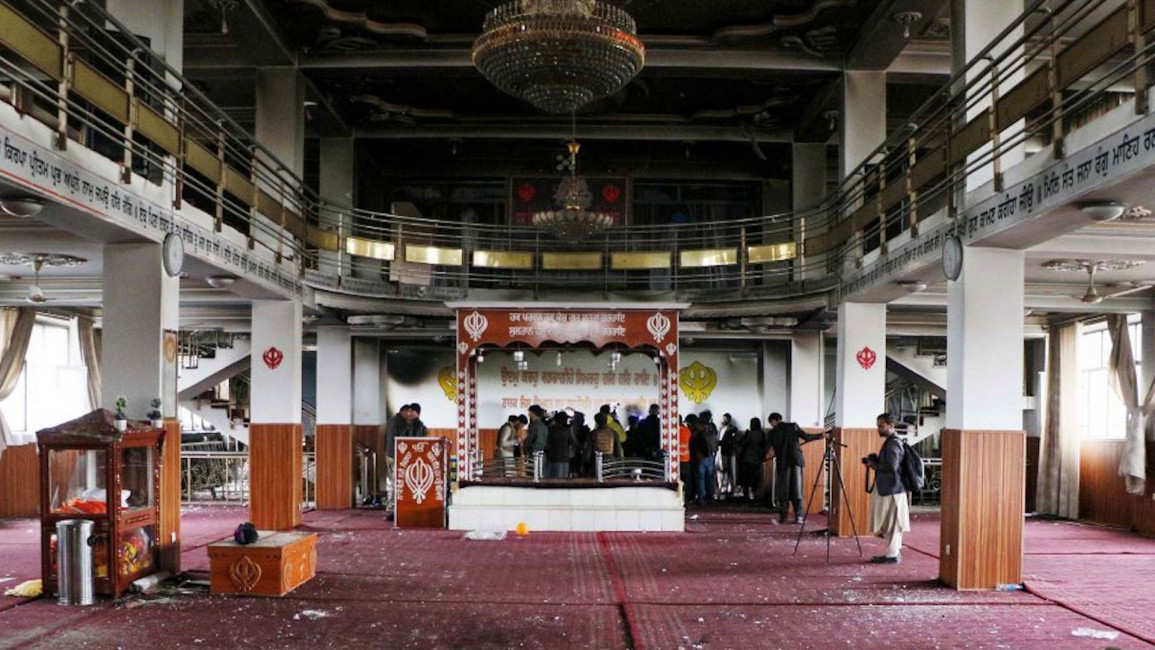Pakistan seeks extradition of IS leader from Afghanistan
Aslam Farooqi is a Pakistani national wanted in connection with attacks claimed by IS in Pakistan. The Afghan government accuses Farooqi of involvement in last month's attack in the Afghan capital of Kabul on a Sikh house of worship that killed 25 worshippers.
The Islamic State group, on its affilated Amaq website, took credit for the attack saying it was carried out by Indian national Abu Khalid Al-Hindi in revenge for Indian military action in its violence-wracked portion of the disputed Himalayan region of Kashmir.
A single gunman rampaged through the Gurdwara, a Sikh place of worship, exploding grenades and firing at worshipers.
There was no immediate response from Afghanistan.
In a statement late on Thursday, Pakistan's Foreign Ministry said the Afghan Ambassador to Pakistan, Atif Mashal, had been summoned and told of Pakistan's worries about the activities of the Islamic State affiliate, known as the IS-Khorazan, headquartered in eastern Afghanistan.
"Since Aslam Farooqi was involved in anti-Pakistan activities in Afghanistan, he should be handed-over to Pakistan for further investigations," the ministry statement said.
Farooqi, whose real name is Abdullah Orakzai, was arrested last weekend along with 19 other IS operatives, according to Afghanistan's intelligence agency.
The upstart Islamic State affiliate has taken credit for attacks in Pakistan, including one in January in the southwestern Baluchistan provincial capital of Quetta that killed 15 worshipers.
|
In recent months, Afghan and American officials claim the IS has been weakened as a result of relentless US bombing raids in eastern Afghanistan as well as military operations by the Afghan National Security Forces and attacks by their rivals, Taliban insurgents.
In the months leading up to Washington's peace deal with the Taliban signed in February, US officials said a key component of the agreement was a promise by the Taliban to aid in the fight against IS, seen as the greatest threat to US national security emanating from Afghanistan.
Read also: Pakistan searches for Muslim pilgrims from mass gathering amid virus fears
Still, the US-Taliban peace deal has had a rocky beginning.
Political wrangling in Kabul between President Ashraf Ghani and his rival in last year's disputed presidential polls, Abdullah Abdullah, has frustrated Washington, which has threatened to withdraw $1 billion in aid if they don't find a power-sharing deal.
Their bickering has delayed the next critical step in the deal, which calls for intra-Afghan negotiations between Kabul leaders, many of whom are linked to warlords and the Taliban.
Delays in completing a prisoner release as laid out in the US-Taliban deal have further frustrated efforts to start the intra-Afghan negotiations.
However, the US and NATO began withdrawing forces and if the Taliban keep their promise to fight terrorism the US will withdraw all its forces over 14 months from the signing of the deal.
Follow us on Facebook, Twitter and Instagram to stay connected



